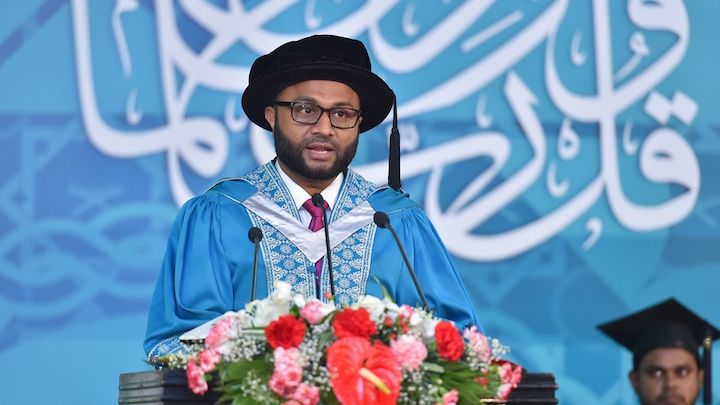Ex-Islamic minister defends death penalty regulations
Dr Shaheem, the vice chancellor of the Maldives Islamic University, argued that the concerns raised by Professor Tariq Ramadan in a letter to the president last week are addressed in the regulations approved by the cabinet in April 2014 for implementing the death penalty.

11 Jul 2016, 09:00
Former Islamic Minister Dr Mohamed Shaheem Ali Saeed has accused Professor Tariq Ramadan of “bringing the Maldives into disrepute” with an appeal to halt the imminent execution of a 22-year-old convict.
Ramadan wrote to President Abdulla Yameen after the Supreme Court upheld the death sentence handed to Hussain Humam Ahmed over the murder of Dr Afrasheem Ali in October 2012, paving the way for the Maldives’ first execution since 1953.
In a Facebook post last Thursday, Shaheem argued that the concerns raised by the renowned Islamic scholar are addressed in the regulations approved by the cabinet in April 2014 for implementing the death penalty.
Ramadan’s concerns included the fairness of the trial as Humam claims he was coerced into confessing, the court’s refusal to order an independent psychiatric evaluation, and an ignored request by the victim’s family to delay the death penalty.
Become a member
Get full access to our archive and personalise your experience.
Already a member?
Discussion
No comments yet. Be the first to share your thoughts!
No comments yet. Be the first to join the conversation!
Join the Conversation
Sign in to share your thoughts under an alias and take part in the discussion. Independent journalism thrives on open, respectful debate — your voice matters.




